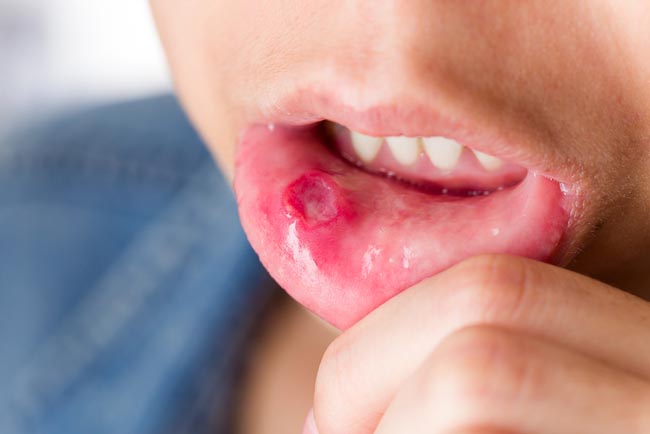Topiramate is a medication to relieve seizures caused by epilepsy. Lennox-gastaut syndrome is one type of epilepsy that can be treated with this drug. Topiramate too can used to prevent migraines. This medicine should only be used according to a doctor's prescription.
The exact mode of action of topiramate is not known. However, topiramate is thought to work by inhibiting the activity of signaling chemicals in the brain (neurotransmitters), so that abnormal electrical activity can be stopped. This way of working will help relieve seizures due to epilepsy.

Trademark topiramate: Epilep, Topamax
What Ithat Topiramate
| group | Prescription drugs |
| Category | Anticonvulsants |
| Benefit | Relieves seizures due to epilepsy and prevents migraines |
| Consumed by | Adults and children |
| Topiramate for pregnant and lactating women | Category D: There is positive evidence of risks to the human fetus, but the benefits may outweigh the risks, for example in dealing with life-threatening situations. Topiramate can be absorbed into breast milk. If you are breastfeeding, do not use this medicine without consulting your doctor first. |
| Drug form | Capsules and tablets |
Warning Before Consuming Topiramate
Topiramate should only be used as prescribed by a doctor. Here are some things you need to pay attention to before taking topiramate:
- Do not take topiramate if you are allergic to this drug. Always tell your doctor about any allergies you have.
- Tell your doctor if you have or have ever had porphyria, glaucoma, kidney disease, breathing problems, depression, liver disease, osteoporosis, or acidosis
- Tell your doctor if you are taking certain medications, supplements, or herbal products.
- See a doctor immediately if you experience a very disturbing mood swing or if you are suicidal.
- Always drink adequate amounts of water during treatment with topiramate, to prevent dehydration, electrolyte disturbances, or kidney stones.
- Do not drive a vehicle or do activities that require alertness while taking topiramate, as this medicine can cause dizziness.
- Tell your doctor if you are pregnant, breastfeeding, or planning a pregnancy.
- See your doctor right away if you have an allergic drug reaction, serious side effect, or overdose after taking topiramate.
Dosage and Instructions for Use Topiramate
The dose of topiramate given by the doctor depends on the health condition and age of the patient. Here is the explanation:
Purpose: Overcoming epilepsy
- Mature: The initial dose of 25 mg is taken at night for 1 week. The dose may be increased by 25–50 mg at intervals of 1–2 weeks. The maintenance dose is 100 mg per day. The maximum dose is 500 mg per day.
- Children aged 6 years: The initial dose is 0.5–1 mg/kgBW taken at night for 1 week. The dose can be increased by 0.5–1 mg/kgBW at 1–2 weeks apart.
Purpose: Prevent migraine
- Mature: The initial dose of 25 mg is taken at night for 1 week. The dose may be increased by 25 mg at 1 week intervals. The maintenance dose is 50–100 mg per day. The maximum dose is 200 mg per day.
Purpose: Overcoming seizures in patients with Lennox-Gastaut syndrome
- Mature: The initial dose of 25–50 mg is taken at night for 1 week. The dose may be increased by 25–50 mg at intervals of 1–2 weeks. The maintenance dose is 200–400 mg per day.
- Children 2 years old: The initial dose of 25 mg is taken at night for 1 week. The dose can be increased by 1–3 mg/kg at 1–2 weeks apart. The maintenance dose is 5–9 mg/kg per day.
How to Consume Topiramate correctly
First, read the instructions on the drug packaging and follow the doctor's recommendations when taking topiramate. Do not reduce or increase the dose without consulting your doctor first.
Topiramate can be taken with or without food. Use a glass of water to swallow the tablet or capsule. Do not crush, chew, or split the medicine as this may increase the risk of side effects.
Drink plenty of water while undergoing treatment with this drug, to prevent kidney stones.
If you forget to take topiramate, take it as soon as you remember. If it is near the time of your next dose, ignore the missed dose and do not double the dose of topiramate to make up for the missed dose.
Perform regular controls during treatment with topiramate. Do not stop treatment without consulting your doctor first.
Store topiramate in a place away from direct sunlight. Keep out of reach of children.
Interaction Topiramate with other drugs
There are several interactions that may occur if topiramate is taken with certain drugs, including:
- Decreased blood levels of topiramate when used with carbamazepine or phenytoin
- Increased risk of hyperammonemia when used with valproic acid
- Increased blood levels of topiramate when used with hydrochlorothiazide
- Decreased levels of digoxin, pioglitazone, glibenclamide, in the blood
- Decreased effectiveness of birth control pills containing estrogen
- Increased levels of lithium in the blood
Side Effects and Dangers Topiramate
Side effects that may arise after taking topiramate include:
- Headache, nervousness, or drowsiness
- Numbness or tingling in the hands or feet
- Weak
- Constipation
- Heartburn
- Tremor
- Menstrual cycle disorders, one of which is not menstruating
- Easy bruising or nosebleeds
- dry mouth
Check with a doctor if the complaints mentioned above do not go away or get worse. See your doctor right away if you have an allergic reaction to a drug or experience more serious side effects, such as:
- Visual disturbances, such as blurred vision, double vision, eye pain, or red eyes
- Seizures that are more frequent or longer
- Impaired memory or difficulty speaking
- Loss of coordination ability
- Chest pain, irregular heartbeat, fast breathing, or difficulty breathing
- Loss of appetite, stomach pain, or back pain
- Pain when urinating, difficulty urinating, or bloody, cloudy, or foul-smelling urine









